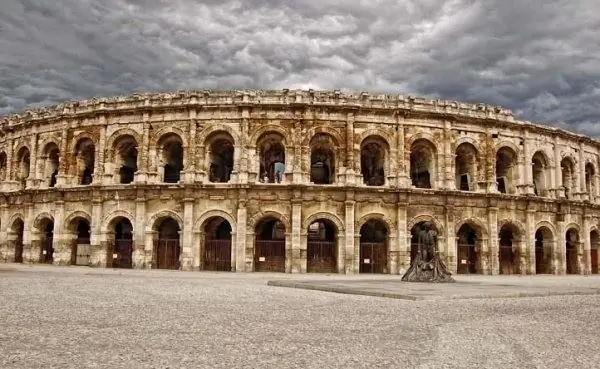- Author Nora Macey macey@family-relation.com.
- Public 2023-12-16 10:17.
- Last modified 2025-01-23 08:47.
In the foreign press, Russia is often accused of imperial ambitions, suspecting of striving to restore its former power. Nowadays, thanks to the efforts of modern propaganda, even the very word "empire" has in many ways begun to bear a negative connotation, as a phenomenon associated with abuses of power and oppression of peoples. But is it really so? What does the term "empire" mean and what kind of social structure does it mean?

Instructions
Step 1
The word "empire" comes from the Latin Imperium and literally translates as "having power", "mighty". Initially, this was the name of the organization of the highest state power in Ancient Rome in the post-republican period of its development (1st century BC - 5th century AD). Over time, the meaning of this term has expanded, and the word "empire" began to mean any monarchical state headed by a monarch with unlimited power - the emperor.
Step 2
As a result of the history of colonial conquests and the formation of colonial empires like the British, science has developed an understanding of the empire as a kind of supranational state formation, uniting different peoples and countries within its framework under the leadership of one common idea (religious or ideological). In other words, a large state formation that unites countries and peoples around a single political center began to be called an empire. Any empire is always based on some universal idea of a civilizational, ideological or religious nature. Moreover, in some cases, ideology may well be replaced by an economic justification.
Step 3
Empire is one of the most ancient forms of state structure of society, which has not lost its relevance today. Modern researchers distinguish several different types of empires: ancient (Egyptian, Roman, Persian), traditional (Russian, Austro-Hungarian, German, Japanese, Ottoman) and colonial empires of the modern era (British, Spanish, Portuguese, etc.).
Step 4
Regardless of the characteristics of their emergence and formation, all empires have some similarities. First of all, any empire is always a conglomerate that assumes cultural and economic diversity. The empire presupposes the presence of a single economically powerful center - the metropolis, and numerous provinces (colonies), differing among themselves by ethnic, cultural and economic characteristics.
Step 5
By the 60s of the twentieth century, almost all traditional empires had already ceased to exist, so nowadays the term "empire" is often understood somewhat differently. The empire today is rather a large superpower with its own sphere of interests and striving to politically and economically control the formally independent states located close to its borders.


